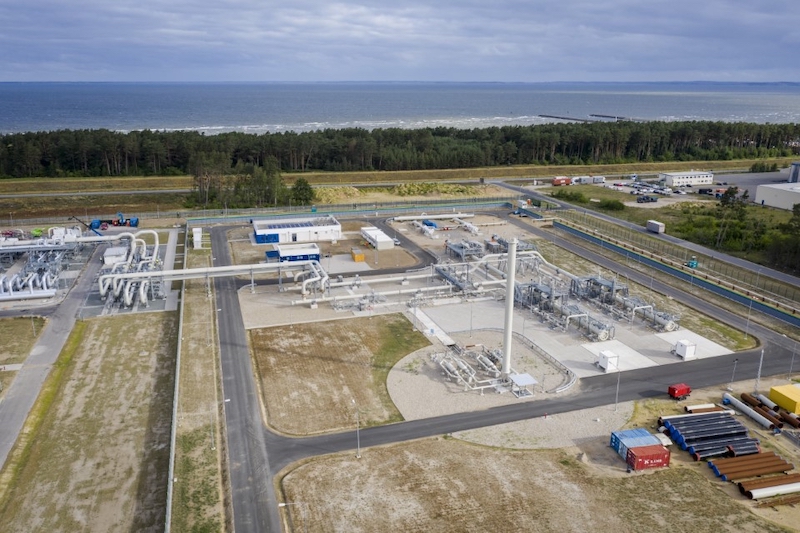German Gas Storage Operators Warn of Overblown Plans for Hydrogen Grids
(Reuters) — Germany's future hydrogen demand could fall well short of the baseline the country is assuming in its plans to extend its gas network to carry the fuel, a study commissioned by a storage operators' group showed on Thursday.
The research, which advocates storing more hydrogen at home, comes as Europe's biggest economy is about to decide how to place billions of euros to develop green hydrogen for decarbonization in the coming decades.
A cornerstone of Berlin's hydrogen strategy is a 20 billion euro, 9,700 km (6,000 mile) core hydrogen network outlined in plans by gas pipeline operator caucus FNB Gas last November, which envisaged hydrogen use of 279 terawatt hours (TWh) a year by 2032.
But a study presented on Thursday by storage group INES and prepared by energy consultancy Aurora saw hydrogen demand ranging only between 73 and 123 TWh up to 2030.
Border trading points of less than 10 gigawatt hours per hour (GWh/h) of imports might be sufficient to meet that demand, according to the Aurora study, compared to the 59 GWh/h envisioned under the FNB plan.
"Aurora's short analysis illustrates how big the uncertainties in network planning still are and how big a risk it is that overcapacities could be developed which would never be utilized," said Sebastian Heinermann, director of INES.
The FNB plan builds on the conversion of 60% of existing gas pipelines.
With the market ramp-up for hydrogen still in its infancy, a look at promising geological potential for domestic hydrogen storage would offer potential for investment savings, Aurora recommended.
INES' members include the Astora company within the SEFE group, VNG Gasspeicher, Uniper, and RWE.
($1 = 0.9130 euros)
Related News
Related News

- Keystone Oil Pipeline Resumes Operations After Temporary Shutdown
- Freeport LNG Plant Runs Near Zero Consumption for Fifth Day
- Biden Administration Buys Oil for Emergency Reserve Above Target Price
- Mexico Seizes Air Liquide's Hydrogen Plant at Pemex Refinery
- Enbridge to Invest $500 Million in Pipeline Assets, Including Expansion of 850-Mile Gray Oak Pipeline





Comments